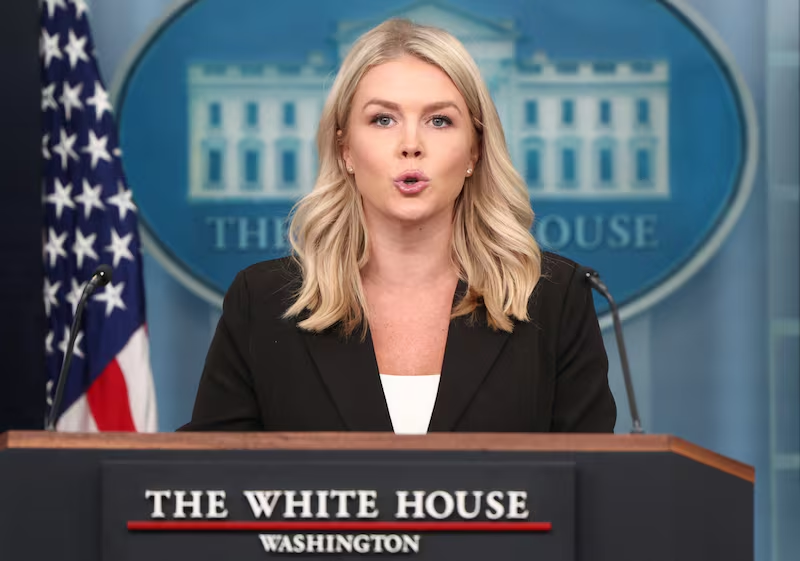The White House border patrol shooting has sparked intense reactions across the political spectrum. In response, the White House is urging Democratic leaders to lower their tone and approach the matter with caution and responsibility.
The shooting incident, which involved a U.S. Border Patrol agent and resulted in the death of a migrant near the southern border, has reignited debates around immigration, border control, and the conduct of federal officers. The Biden administration is now walking a fine line—trying to manage political fallout while also defending institutional processes and national security.
This article will break down what happened, how both parties are reacting, and why the White House is stepping in to control the narrative.
What Happened in the Border Patrol Shooting?
The incident occurred last week in a remote area near the U.S.-Mexico border. Reports say a U.S. Border Patrol agent opened fire after allegedly being threatened during an encounter with a group of migrants. One individual, a young man believed to be from Central America, was shot and killed.
According to initial law enforcement accounts, the agent involved claims he acted in self-defense. An investigation by U.S. Customs and Border Protection (CBP) and the Department of Homeland Security (DHS) is currently underway.
This is not the first such case—similar incidents have taken place over the years. However, what makes this case different is the fast and vocal political reaction that followed.
Democrats Respond with Sharp Criticism
Several high-profile Democrats quickly condemned the shooting. Some went so far as to accuse border patrol agents of using excessive force and operating without enough oversight.
Statements from a few progressive members of Congress labeled the incident as “another example of militarized violence against vulnerable communities.” One lawmaker tweeted, “How many more people must die before we rethink border enforcement?”
While these reactions gained traction on social media, they also led to a flood of backlash from Republican figures, border officials, and conservative news outlets. Tensions flared, and the situation quickly escalated into a political firestorm.
The White House Response: A Call for Caution
In light of the rising political heat, the White House border patrol shooting statement has become a central point of focus.
White House Press Secretary Karine Jean-Pierre addressed the matter during a press briefing. She acknowledged the “tragic nature” of the incident and confirmed that a full investigation is being conducted. However, she also emphasized the need for responsible communication:
“This is a deeply sensitive issue. We urge everyone—especially elected officials—to avoid inflammatory rhetoric while facts are still being gathered.”
Behind the scenes, senior officials are reportedly urging Democratic leaders to “tone down” their public remarks, warning that harsh criticism before the investigation concludes could damage public trust in law enforcement and fuel partisan divides.
Why Is the White House Urging Democrats to Tone It Down?
There are several key reasons why the Biden administration wants Democrats to moderate their rhetoric in the wake of the White House border patrol shooting:
1. Preserving Law Enforcement Trust
President Biden has consistently positioned himself as a supporter of both humane immigration policies and strong law enforcement. If Democratic leaders go too far in their criticism, it may alienate border patrol officers and complicate federal cooperation.
2. Avoiding Political Blowback
Republicans have already seized the opportunity to portray Democrats as anti-border enforcement. The White House wants to prevent the shooting from becoming a midterm election talking point that hurts moderate Democrats.
3. Allowing Investigations to Proceed Fairly
Jumping to conclusions before official investigations finish can weaken legal processes and lead to misinformation. The administration is keen on upholding due process.
Reactions from Border Patrol and Law Enforcement
U.S. Border Patrol officials have defended the agent involved, urging the public to avoid forming opinions before the investigation is complete.
A senior CBP official stated, “Our agents operate under extremely dangerous and unpredictable conditions. Quick judgment can lead to unfair outcomes.”
The National Border Patrol Council, the union representing border patrol agents, also pushed back against Democratic criticisms. In a public statement, the union accused “radical politicians” of putting agents’ lives at greater risk by spreading “anti-border patrol sentiment.”
Immigration Advocates: “Accountability Is Still Crucial”
While the White House and border agencies ask for calm, immigrant advocacy groups argue that accountability cannot be overlooked.
“We respect the need for due process,” said Maria Lopez, director of Border Justice Network. “But there is a pattern of excessive force at the border, and it deserves attention.”
These groups are demanding independent oversight and increased transparency in how such cases are handled. They also want body camera footage released to the public, something the Biden administration has pledged to support but has not yet implemented across all patrol units.
A Delicate Balancing Act for the Biden Administration
For President Biden, the White House border patrol shooting represents a difficult balancing act. On one hand, he must respond to public outcry over migrant deaths and maintain the support of progressive voters. On the other hand, he must reassure the law enforcement community and avoid appearing weak on border security.
This tension reflects broader challenges in the Biden administration’s immigration policy. Despite promises to build a more humane system, the southern border remains a politically explosive topic.
Polls show that immigration is one of the top concerns for American voters in upcoming elections. The way this situation unfolds could impact the President’s approval ratings and influence electoral outcomes in key swing states.
Media Coverage and Public Perception

The media response to the White House border patrol shooting has been mixed. Progressive outlets have focused on the victim’s background and the broader implications of border violence. Conservative channels, meanwhile, have highlighted the dangers border agents face daily and accused Democrats of playing politics.
Public reaction on social media is equally divided. Hashtags like #JusticeAtTheBorder and #SupportOurAgents have been trending simultaneously, showing how polarized the issue has become.
The White House is working hard to manage this perception, ensuring that the public hears a balanced message while discouraging divisive commentary.
What Happens Next?
Here’s what we can expect moving forward:
- Ongoing Investigation: Federal agencies will continue looking into the incident. If the agent is found to have acted outside protocol, disciplinary action or criminal charges could follow.
- Internal Policy Review: The Department of Homeland Security may review use-of-force guidelines and training for border agents.
- More Political Fallout: As the 2026 elections approach, both parties are likely to use this incident in their broader immigration narratives.
- Public Transparency Push: There will likely be renewed calls for body cameras, independent investigations, and public reports after use-of-force incidents at the border.
Conclusion: Time for Cooler Heads to Prevail
The White House border patrol shooting has exposed deep divisions in American politics—on immigration, law enforcement, and public accountability. While it’s natural for people to react emotionally to tragic news, the White House is sending a clear message: tone matters.
By urging Democrats to moderate their language, the administration is hoping to create space for facts to emerge and justice to be served without inflaming tensions. It’s a delicate moment—and how leaders respond now could shape the national conversation for months to come.
Do Follow on Instagram
Read Next – Did Trump Promise No Tax on Overtime? What You Should Know





